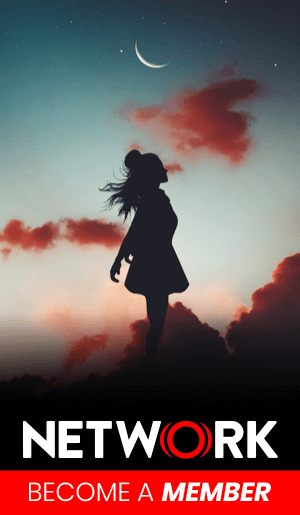LONDON, UK - The BBC's International news services: BBC World News, BBC World Service and BBC.com have launched My World - a global multimedia initiative, which aims to build a unique picture of people's lives around the globe, via user-generated content.
Audiences worldwide are invited to shoot a two minute mini-documentary with the theme of My World , using any kind of camera available to them - from a mobile phone to a digital camera. Clips can be submitted on the competition webpage www.bbc.com/superpower .
The project aims to find original stories from each continent, with compelling personal narratives. A shortlist will be made comprising the most original, ambitious and thematically important pieces. The best material from each continent will then be assembled into sequences of ten films by guest curators; these will be shown on BBC World News and entrants interviewed as part of 'The Strand' on BBC World Service. Finally, a single film will be chosen by the curators and awarded the prize of a semi-professional camcorder.(For more information on contests check out our latest film industry updates)
For each continent, a well respected documentary professional will curate and judge the entries. These include Emmy award winning producer Cara Mertes for the Americas, Academy Award winning producer Greg Sanderson for Europe, Director of the Yamagata International Documentary Film Festival Fujioka Asako for Asia, Director of the Encounters Documentary Festival in South Africa, Mandisa Zitha for Africa and Head of Documentaries for the Australian Broadcasting Corporation, Stuart Menzies.
Simon Pitts, Executive Producer, says:
"My World will allow people around the world to share their stories, and show people what matters to them. With the help of our excellent curators, the BBC's international news services will be able to create a vivid and compelling picture of life today on each continent through this unique project."
Emmy award winning producer Cara Mertes
My World Interview with Curator Asako Fujioka (Asia)
What took you into film-making?
Cara: What took me out of filmmaking is possibly the question, as I have made just one documentary after several projects as AD, and chose not to be a filmmaker. Filmmakers need daring and decisiveness and I wasn't sure I had it. Programming and organizing film festivals is easier!
When is documentary a better medium than drama to tell a story?
Cara: When the unconscious in people and relationships reveal themselves. I remember a documentary about a filmmaker s brother who was suffering from psychological problems, hiding away in his room during the day and battering his mother at night. As the camera became a tool to change the static family situation, I was taken aback in the climax scene, when the mother was unconsciously kneading the son's thigh while pleading and negotiating with him. I believe no actor could have thought of that hand movement, and that sort of thing captured on camera is so telling of how complex human beings are. Documentary situations capture the unpredictability of reality, and documentary filmmaking puts it into context.
What is the state of Japanese documentary? What films are people enjoying on TV and in the cinema?
Cara: Japanese documentary enjoyed a period of flourish during the 70s when social activism and social commentary was a big part of people s lives. Today, while activist documentary is still around, the field has diversified. Styles vary from personal and poetic stories, artistic and even experimental (think Cannes Grand Prix winner Naomi Kawase) to music infotainment, historical testimonies, films about faraway countries, and nature docs. Over 80 documentaries from around the world are released in movie theatres each year, to increasing audiences. Public broadcaster NHK TV is strong on nature, famous personalities, and larger social investigative reportages. Commercial broadcasters gear towards more tear-jerking fare, with some going on to show in the cinemas.
Over the past 20 years, our Yamagata International Documentary Film Festival contributed to introducing the public to the wonderful diversity of documentary. The Japanese documentary audience has absolutely boomed this decade since the discovery of more and more docs from the world.
Given the famed politeness and modesty of the Japanese, is it difficult to persuade people to tell their stories to documentary film-makers? And what is the best way to do that?
Cara: What an interesting question. The best strategy has been to get under their skin over time. Filmmakers take years to form trust relationships with their subjects. That's why Japanese documentary filmmakers often take so long to complete films. It took the famed Ogawa Shinsuke and his crew sixteen years living collectively in a small Japanese village to make four films. Having said that, rural people in the olden days were wary of outsiders. Today, even urban people are wary and super-conscious of the camera they have seen enough gossip reports to know the power of the image. Documentary is changing because of this.
Do you have any practical tips for people hoping to submit documentaries for My World?
Cara: I hope to find films that are complete in their shortness and not trailers to longer stories. Original perspectives override technical finesse for me, and I hope people who usually don t get to make films will take this opportunity to tell their own stories.
![BBC_WorldNews_Stack_Rev_RGB [Converted] BBC_WorldNews_Stack_Rev_RGB [Converted]](https://filmindustry.network/wp-content/uploads/BBCsidebar.jpg) Facts About BBC World News:
Facts About BBC World News:
BBC World News, the BBC's commercially funded international 24-hour news and information channel, is owned and operated by BBC World News Ltd, a member of the BBC's commercial group of companies. BBC World News attracts 74 million viewers a week, is available in more than 200 countries and territories worldwide, and reaches more than 299 million households and 1.7 million hotel rooms. The channel's content is also available on 81 cruise ships, 46 airlines, 35 mobile phone networks and a number of major online platforms including bbc.com/news.
To enter your own documentary clips please go to: www.bbc.com/superpower. The chosen documentaries will air on BBC World News and on BBC World Service. The Strand will carry interviews about the project from now until March 2010.












